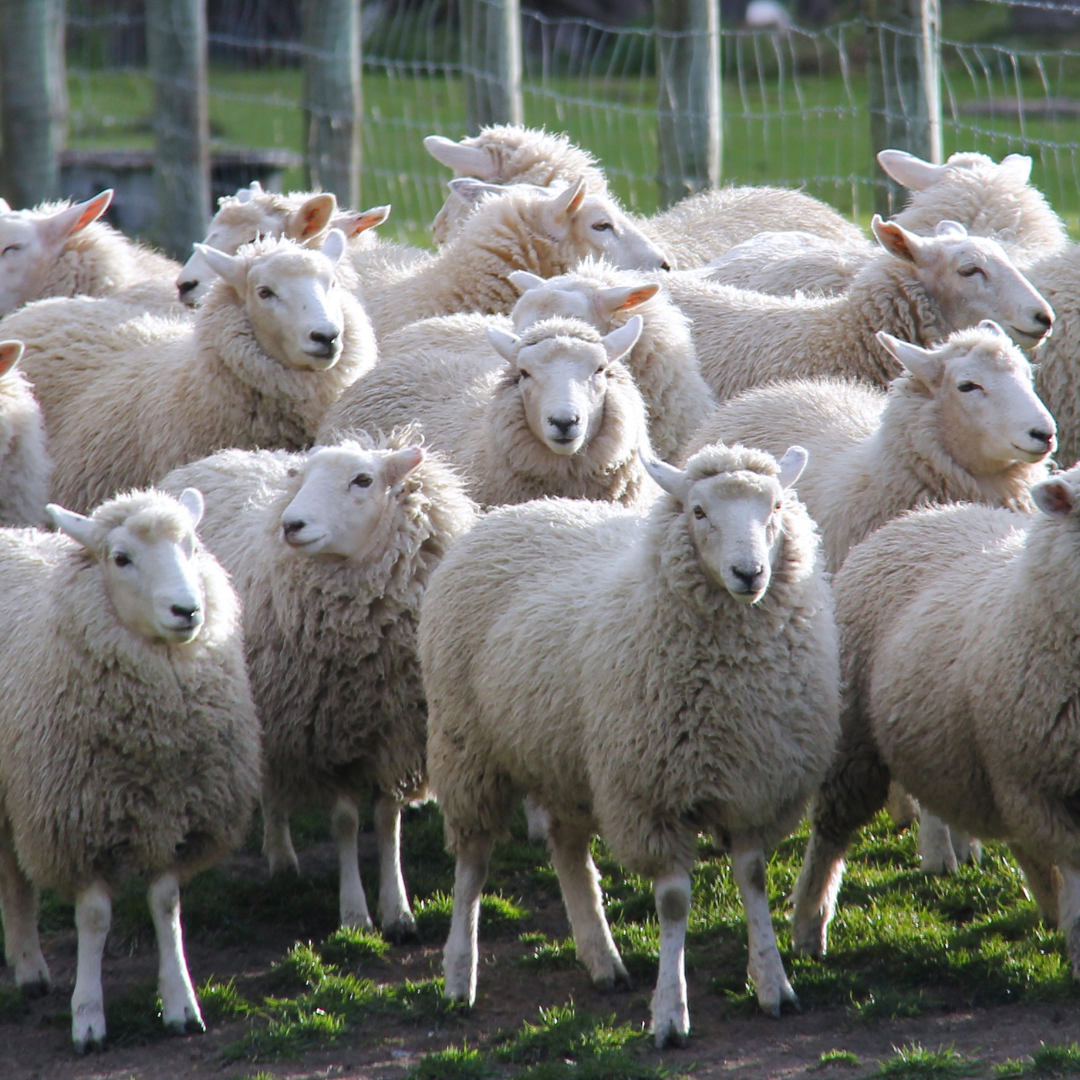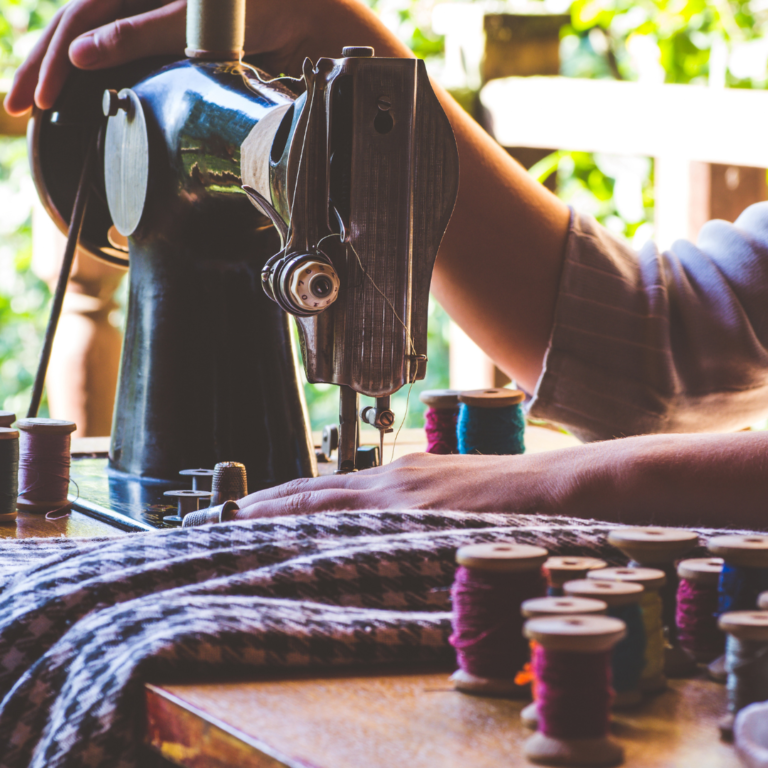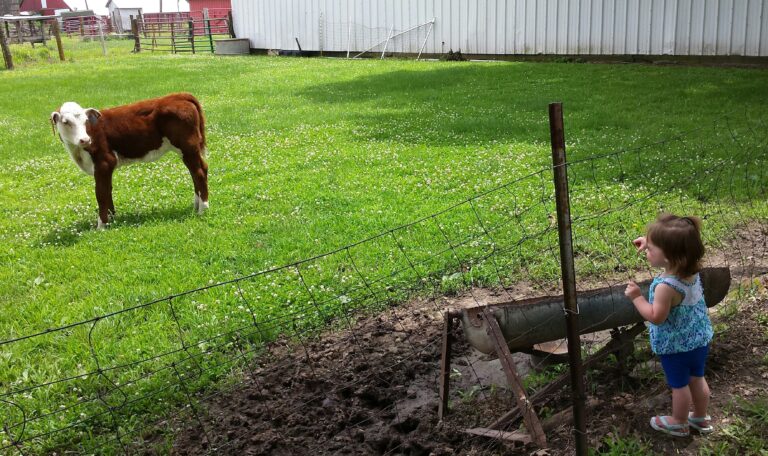Why raise sheep?
This post may contain affiliate links. Read the full disclosure here.
Whether you’re just beginning to build up your homestead property or you’re ready to expand your livestock herds, there are so many wonderful benefits to raising a few sheep (or more than a few!). Why raise sheep? Well, sheep don’t require a lot of space, they’re easy keepers, they have a low startup cost, and they’re overall a fun and hilarious animal to have around – just to name a few reasons!

Why raise sheep?
Here are a few more reasons to consider raising sheep:
- They’re easy to care for
- They provide excellent meat
- You can shear their valuable wool
- They produce nutritionally dense milk
- They’ll maintain your pasture
- They can be profitable for breeding
- They’re gentle for kids to handle
1. They’re easy to care for
Sheep are fairly easy keepers. Especially if you’re just starting out or live on a smaller property, sheep can be a great option for jumping into raising livestock. They don’t require nearly as much pasture as cattle, and they’re not as curious or as difficult to contain as goats or pigs. They’re also good foragers and don’t require top-notch pastures nor the freshest hay in order to thrive.
Some of the hardiest, easiest sheep breeds to keep include Katahdins, Dorpers, and Barbados Blackbelly Sheep.
However, you’ll want to consider your goals (such as meat production, wool, or dairy) before choosing a breed.
2. They provide excellent meat
Lamb (meat from a young sheep) and mutton (meat from an adult sheep) is definitely underrated. It’s nutritious as well as delicious! Roasts, lamb chops, stews, and rack of lamb are all tasty ways to cook the meat.
Sheep also reproduce fairly quickly compared to some other animals, allowing you to harvest a significant amount of meat each year depending on the size of your herd.
3. You can shear their valuable wool
While some breeds of lamb are best for meat, others are excellent for wool production. Still others, such as Hampshires and Suffolk, are multi-purpose sheep that are valuable for both meat and wool.
Some of the best breeds for wool sheep include Merino, Corriedale, Rambouillet, and Debouillet.
Wool is warm, dries quickly, and even absorbs toxins. Depending on the breed of sheep you raise, you can either use the wool yourself for spinning and textiles or you can sell it and earn a profit. Keep in mind that some types of wool are more valuable than others, and different types of wool are also used for different purposes.
4. They produce nutritionally dense milk
Like meat, milk from sheep is another often-overlooked product that’s actually packed with benefits. Sheep’s milk is filled with protein, healthy fats, calcium, zinc, magnesium and phosphorus, as well as a host of other vitamins.
Because of its high fat and protein content, sheep’s milk is also excellent for making dairy products like cheese and yogurt.
5. They’ll maintain your pasture
Besides being productive in a variety of ways, sheep are wonderful foragers. They aren’t very picky and generally are fairly easy to fence in. Because of this, they’re an excellent option for clearing and maintaining your pastures and giving you less mowing to do! Sheep are, however, susceptible to predators, so it’s important to make sure that your fencing is strong enough to keep predators out.
In addition, be sure to familiarize yourself with the types of plants that are poisonous to sheep before letting them roam in your pastures. Some of these plants include milkweed, lamb’s quarters, pokeweed, and black locust.
6. They can be profitable for breeding
Many types of sheep are easy breeders and are much easier to breed yourself than larger animals are. Sheep can give birth 1-2 times per year and generally average 1-3 lambs per birth (after the first pregnancy, twins or triplets are quite common).
Because sheep can have multiple babies per year and can generally reproduce with minimal intervention, it’s not overly difficult to start breeding and selling your sheep for a profit.
Do keep in mind that you’ll want to make sure you’re breeding animals that are well muscled, have good conformation, and are overall healthy.
7. They’re gentle for kids to handle
Lastly, sheep are friendly, gentle animals that are great for kids to handle and care for. Overall, sheep are simply delightful, entertaining animals to have around your farm. Whether you’re watching the new lambs skip about, enjoying letting your sheep munch on fresh pasture, or allowing them to follow you around the barnyard, sheep tend to bring joy and laughter to any homestead.
Sheep are also an excellent choice for kids who are getting started in 4-H. They’re big enough to teach a significant sense of responsibility, yet not too strong nor too difficult to care for to be discouraging.
Best breeds of sheep to raise
Remember that the best breed of sheep for your homestead depends on what your goals are. Do you want to produce lots of meat? Maintain the easiest keepers? Harvest wool? Produce nutritious dairy?
Here are some of the best breeds of sheep for meat, milk, and wool.
Best meat sheep breeds
- Suffolk
- Katahdin
- Hampshire
- Dorper
- Cheviot
Best dairy sheep breeds
- East Friesian
- Icelandic
- Lacaune
- Assaf
- Awassi
Best fiber sheep breeds
- Merino
- Tunis
- Shetland
- Corriedale
- Rambouillet
Want to learn more about homesteading animals?
We think sheep are one of the best animals for getting started in homesteading, but they aren’t the only good choice, of course! Chickens, ducks, rabbits, and bees are other options for easy, profitable animals on the homestead. Check out our blog to learn more!

See our Airstream Remodel Reveal here!





